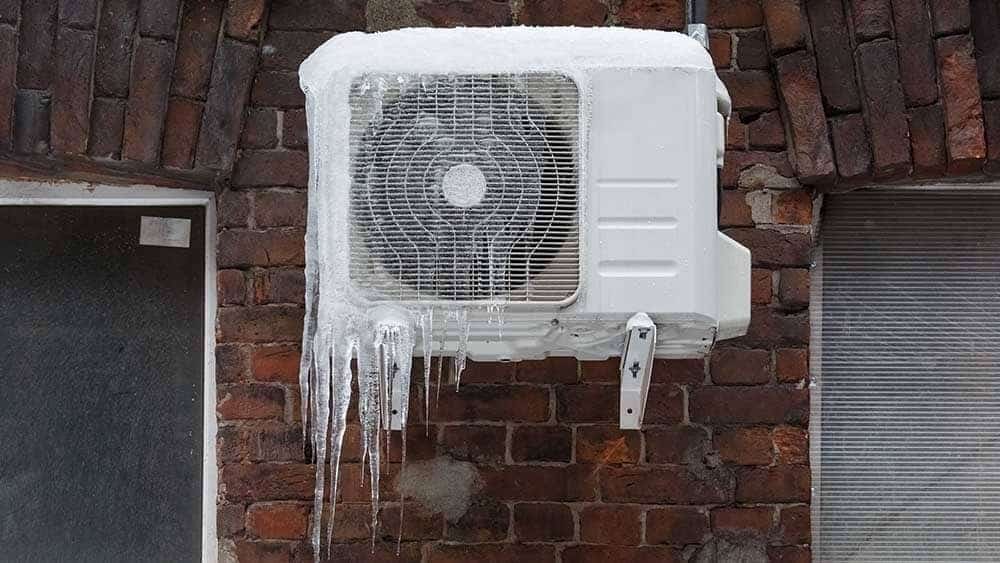
During the winter months, your air conditioning unit will likely be in an ideal state. The weather outside is cold, after all, and you’ll likely be using your heater as your home’s main temperature regulator. In fact, it’s common for homeowners to neglect their AC units until the climate starts warming up.
However, this practice isn’t ideal, as this downtime presents a great opportunity for you to give your A/C unit some tender love and care. With a little bit of effort during this crucial period, you can extend your AC’s lifespan and help improve its efficiency before the time comes for you to use it again.
It doesn’t matter whether your home’s A/C unit is a central system, a split unit, or a window unit. Giving it some thoughtful fixes in the wintertime can help you improve its condition in the following seasons.
If you’re wondering how you can actively improve your air conditioning unit’s status before winter ends, you’re in the right place. We’ll lay down six tips to help you make the most of this crucial downtime and give your A/C unit the care it deserves.
Let’s hop into it!
1. Cut Off The AC Unit’s Power Supply
The first and most critical step to winterising your A/C unit is turning off its power supply. Turn off the power switch or circuit breaker of the device and ensure that there’s no electrical current flowing through the unit. Plug it off from a wall outlet for extra measure.
Turning off your AC unit helps your household in a number of ways. For one, it prevents you from racking up a high electricity bill due to a running appliance. Secondly, it prevents your unit from randomly turning on when the temperature inside gets too hot (due to the heater). It also reduces the odds of your appliance experiencing a sudden electrical surge.
Cutting off the A/C unit’s power supply also keeps the appliance from experiencing wear and tear due to continuous and non-stop use. The compressor is particularly susceptible to damage due to the cold air slowing down refrigerant pressure and potentially freezing the pipes—interfering with the normal cyclical flow of the appliance.
If you want to increase the longevity of your appliance, keeping it turned off in the winter helps. But as we said earlier, don’t just neglect the device. There are other crucial things to do to enhance its durability.
2. Get Maintenance Work Done
A normal air conditioning unit can last anywhere between 10 to 15 years. During the last leg of its lifespan, it can face mechanical shortcomings such as loud humming noises, high energy consumption, inefficient cooling, and on-and-off performance.
In such cases, having repair work done on the unit in wintertime is ideal because you won’t be inconvenienced by it not being operational during the warmer months. Getting in contact with a mechanic can help you get a thorough assessment of your AC’s performance. They may also be able to conduct more technical repairs that you may not be able to do.
Furthermore, they could make the call that your A/C unit is not anymore in an operational state and needs to be replaced. Fortunately, you can easily fit and install a new AC unit during the winter months because it won’t affect your home’s temperature needs as much as it would during the warmer months.
3. Clean the A/C Unit
Winter presents the perfect opportunity to give your air conditioning unit a thorough maintenance check and cleaning. This is because you don’t have to set some downtime for it during the summer or warmer months.
Cleaning an A/C unit is a meticulous process, but it’s essential if you want to keep the unit durable and lasting for a long time. Start by accessing the backside of the unit (where the compressor is) and declogging any gunk and debris that may be inside it.
Pluck these debris out with gloved hands or use a thin brush to brush them away from the appliance. Following that, use a damp cloth and a water spray or hose to clean the exterior from dirt build-up. Be sure to dry it with a dry cloth afterward to avoid moisture damage.
Keeping your A/C unit free from obstructions and spotless helps it run smoothly. So if you want to extend your unit’s life, be sure to do this every winter time—or at least twice a year at minimum.
4. Cover Your External Unit
If you’re using a split, inverter, or box airconditiioning unit, then it’s essential to protect it from the cold outdoor air. You can do this by laying a breathable tarp over it.
By covering your unit with the tarp, you’ll minimise your appliance’s exposure to snow, ice, and natural debris that may fall and build up close to your A/C unit. This is a good thing—as it helps you enter the next season with a fully functional and debris-free A/C unit. You don’t have to risk a chance of corrosion and blockages and get straight to cooling your home.
However, avoid wrapping yoru condenser in plastic container. While it may intuitively seem that this is a good strategy to encase your A/C unit from debris, this can lead to moisture build-up within the unit. This, in turn, can accelerate rusting and deterioration.
It’s also noteworthy to mention that too much debris laying close to the exterior part of the airconditioning unit can cause inefficiencies in the cooling mechanism of the AC unit. A tarp helps you gather and remove these pieces of debris much more quickly thanks to its expandable and reversible characteristics.
5. Remove Nearby Debris
Before spring rolls over, it’s important to remove debris from the ground that has accumulated from the past seasons. Autumn is the time when lots of leaves and twigs fall to the earth—and this can cause your outdoor A/C components to clog, build up moisture, and become inefficient.
Spend some time removing the debris that has settled in the ground surrounding the A/C unit. Clearing a space of three feet is a good distance to promote proper airflow and protection for your A/C unit.
You can sweep the pieces of debris with a broom and put it in a rubbish bag. Be sure to also clear the moisture that may have accumulated once the snow melts. This, in turn, helps prevent your A/C unit from malfunctioning during the warmer season.
6. Change or Replace Air Filters
You should also be mindful of the interior of your A/C unit, particularly, the air filters.
Airconditioning units have filters to keep contaminants and dirt from circulating around your home. Over time, these filters can get dirty and become more inefficient in maintaining a cool temperature.
Depending on your A/C type, you’ll have to either replace or clean these air filters to maintain the performance of the A/C unit. This should ideally done once every three months—and if you happen to be behind on this task, wintertime is the perfect time to get your filters replaced.
A/C units that utilise disposable filters can just undergo a quick switch with a brand new filter that’s compatible with your appliance. For A/C units with reusable filters, on the other hand, you’d have to wash the filter and dry them out before reinserting them into your appliance.
By regularly replacing and washing your filters, you can keep your air clean and allergen-free, which can make for a more comfortable and cool indoor environment during the warmer months.








